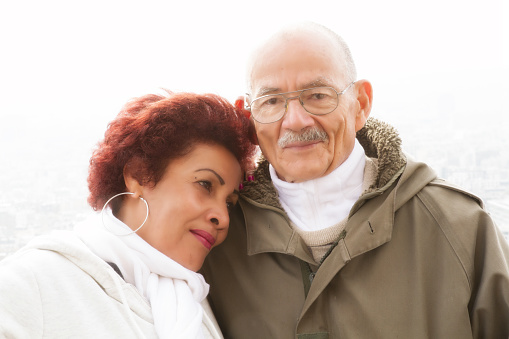Recently, COAH Director Dr. David L. Roth was interviewed by the American Heart Association for an article about caregiving titled, “The risks and rewards of caregiving for loved ones with dementia.” The story is about the struggles of a husband and wife, Pat and John Sullivan, who have been together for forty years. John has Lewy body dementia. Pat is taking care of him.
The act of caring is clearly a gift of love, especially when dementia is involved; that scenario may last for years, and it may be very emotional and physically exhausting, to the point that it might affect the caregiver’s health. Adding to that risk, and what may not be readily apparent at first glance is that Pat needs to take care of her health, too, since she has type 2 Diabetes and is 79 years old.
In the AHA story, Dr. Roth explains, “The main people who are at risk of physical health problems are those who feel overwhelmed by their responsibilities and have been doing it many months or even years, so it has a wear and tear effect on their systems… They feel like they have little control or choice and can’t get additional resources to help them carry the load.” Yet, Dr. Roth’s research on stress biomarkers among caregivers has shown that the act of caregiving may actually have health benefits, akin to the effects of volunteerism.
Aside from the inevitable heavy responsibilities associated with caring for someone with dementia, the article implies that stress management may actually be the key difference between caregivers’ ability to cope. Pat Sullivan makes time to meditate, practice gratitude, and call upon her family and support system when needed.
As you call, Zoom, or visit with family and friends this holiday season, consider asking caregivers how they are doing, if they need anything, and how you can help. Be ready to point the caregiver in the right direction. To that purpose, here are a few caregiver resources:
National:
- Alzheimer’s Association Caregiver Health
- AARP Family Caregiving
- Caregiving in the LGBT Community
- Family Caregiver Alliance
- National Institute on Aging Caregiving
State of Maryland:
Johns Hopkins Affiliated:
- Alzheimer’s Disease and Related Dementia
- Called to Care
- Medicine for the Greater Good Caregiver Cafes
In the article, Dr. Roth indicated that one caregiver shouldn’t try to do it alone. There are community resources that can help, and perhaps other family members or loved ones can contribute to respite care. In summation, the gift of caring needs to extend to caregivers, too. And the resources above may offer direct services or help identify providers.
Additionally, here is a short list of Dr. Roth’s research on caregiving:
- Reduced Mortality Rates among Caregivers: Does Family Caregiving Provide a Stress-Buffering Effect?
- Informal caregiving and its impact on health: A reappraisal from population-based studies
- Improving caregiver well-being delays nursing home placement of patients with Alzheimer disease
- Appraisal, coping, and social support as mediators of well-being in black and white family caregivers of patients with Alzheimer’s disease
Dr. Roth also recently wrote this blog for National Family Caregiver’s Month in which you might be interested:
We wish you and yours a safe, healthy, and happy holiday season!
By Anthony L. Teano, Communications Specialist

